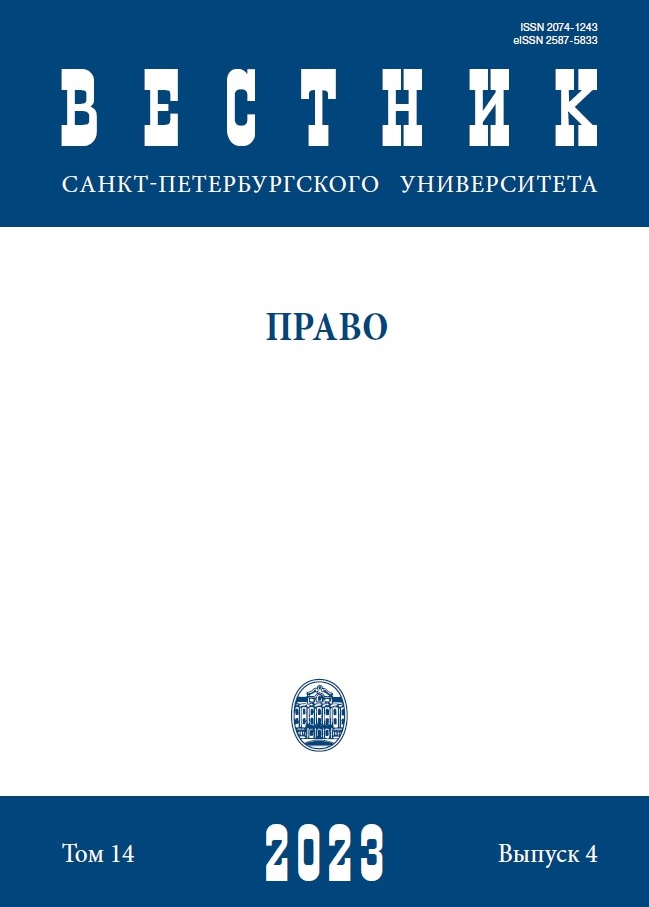HIV infection: Criminal medical research
DOI:
https://doi.org/10.21638/spbu14.2023.408Abstract
The article presents the criminal-legal characteristics of the crime provided for by Art.122 of the Criminal Code of the Russian Federation, identifies the most typical problems of applying this rule of law, as well as proposed solutions. The main part of the work is devoted to the analysis of the content of the signs of the compounds provided for by various parts of Art. 122 of the Criminal Code of the Russian Federation. A direct object of encroachment as been identified, as which it is necessary to understand the public relations that deter-mine the inadmissibility of the spread of HIV infection as an integral part of ensuring the inviolability of human life and health. The main conclusions made in the course of the study are as follows. The criminal liability of an HIV-infected person with an undetectable viral load under part 1 of Art. 122 of the Criminal Code of the Russian Federation is impossible, since such a person is not able to transmit the disease to another person. According to this norm, criminal liability of a person who has correctly used proven means of preventing HIV infection (condoms, pre-contact prophylaxis) is also excluded. The act provided for in part 1 of Art. 122 of the Criminal Code of the Russian Federation consists in committing actions that create a real and immediate threat of HIV infection of another person, if the disease does not occur due to circumstances beyond the control of the culprit. Phylogenetic analysis can be used to prove the innocence of a person in infecting another person with HIV infection.
Keywords:
sexual contact, sexual transmission, infectious diseases, phylogenetic analysis, epidemiological investigation, qualification of crimes, criminal legal characteristics
Downloads
References
Downloads
Published
How to Cite
Issue
Section
License
Articles of "Vestnik of Saint Petersburg University. Law" are open access distributed under the terms of the License Agreement with Saint Petersburg State University, which permits to the authors unrestricted distribution and self-archiving free of charge.






